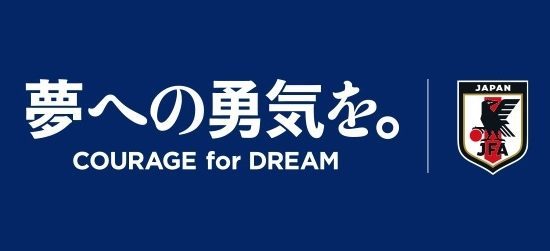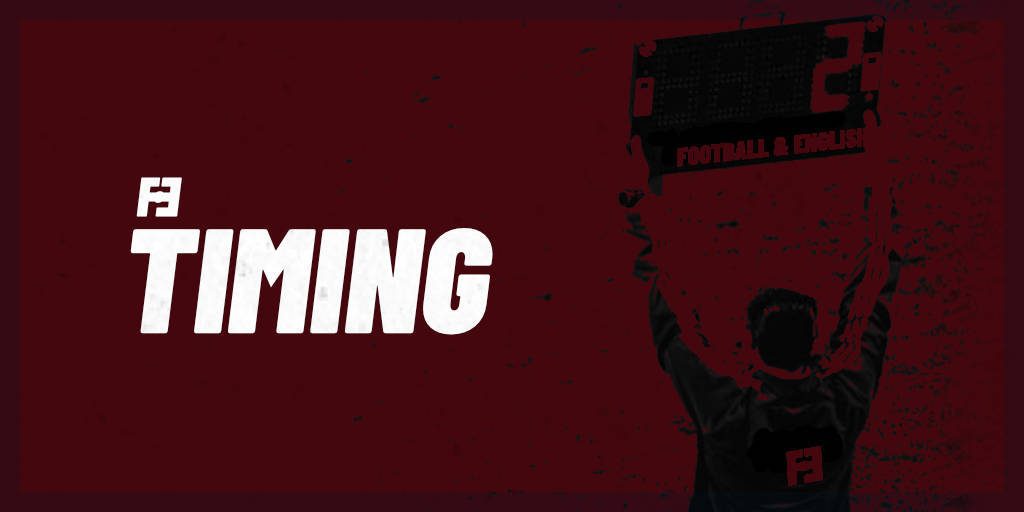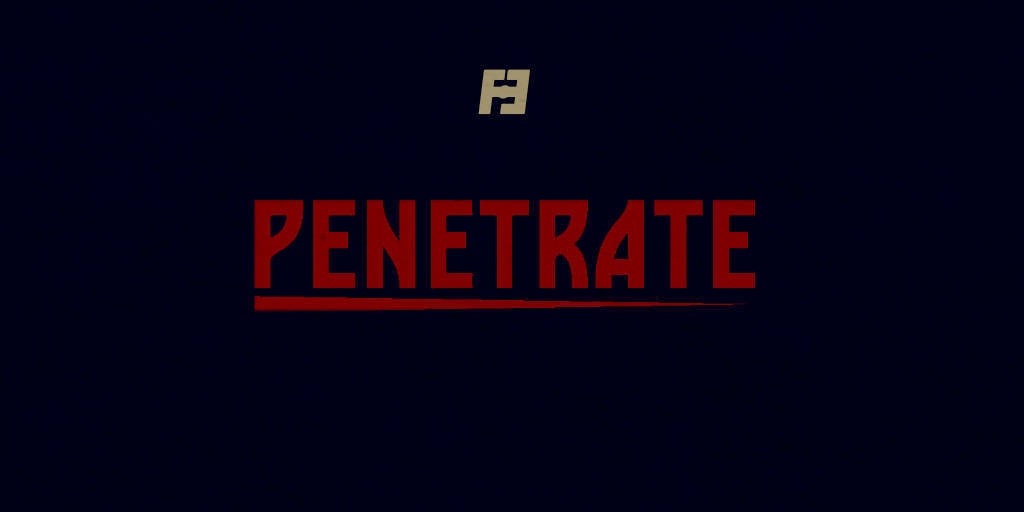Episodes Mentioned

JFA Courage For Dream
Transcript
Tommy: 00:03
Hello and welcome to another episode of Football & English. This week, we're taking on a bit of a lighter topic where we get to complain about some of our pet peeves. Hello, Tomo.
Tomo
おはようございます。トミー、元気ですか?
Tommy: 00:15
Yes, I'm good. I'm good. We're having a little bit of a vent today, we would say. Kind of complaining about things that we don't like.
Tomo
今日の単語、ペッドピーブス、あんりま聞いてもなかったんだけどね。これについて喋るんです。
Tommy: 00:30
It's not just about complaining. I didn't want to do this episode just to complain, but I think it's a really useful term that we use quite a lot in English, pet peeve, so I thought it'd be a good way to introduce that. The definition of a pet peeve is "something that especially annoys you."
Tomo
日本語は、「ちょっとイラッとさせるもの」という感じです。ペットは自分に近しいもの親しい。ピーブスは形容詞でPeevish=腹が立つムカムカさせるから来てるんじゃないかと言われてます。
Tommy: 01:01
Yeah. And for me, it means something small, something that doesn't really matter. It's not very important, but it annoys you. So we're going to talk about some of those about football today. And I've chosen three, Tomo's chosen three and we haven't actually shared these with each other, so for the first time, we don't have a script. We don't know what each other is going to say. So it's going to be interesting.
Tomo
僕たち、いつもこのポッドキャストをとるときに、割としっかり台本を作っていて、それ通りに喋ってきたんです。というのも、僕が勝手に結構いろんな話をしちゃうから、トミーと共有するために、今日のボキャブラリー、何を喋っていくかっていうのをしっかり作ってきたんですけど、今日は全く白紙のまま行きます。今日のテーマ、ペットピースについて喋ってみるんです。例でいくと、この番組でも喋ってきたけど、スローインの位置が出た場所から全く違うじゃないか?とかね。
Tommy: 02:02
That's right. So that's a great example, because, really, it doesn't change much, but it's still very annoying to people, to me included. Or waving imaginary cards to get a player booked or sent off. You see that a lot, and a lot of people complain about that.
Tomo
ダイブのジェスターとかね、あれはちょっとイラッとするかもしれないすけど、早速行ってみましょう。一つ目はトミー、なんでしょう?
Tommy: 02:28
My first pet peeve is kids with signs saying 'give me your shirt.'
Tomo
流行ってますね、流行ってる。
Tommy: 02:38
Yeah, this is pretty recent. I'd say in the last maybe -- maybe, was it before COVID, I guess? Just before? 2018, 2019, you started seeing this and it's kind of evolving into kids actually running onto the pitch to try and get the shirt, like literally trying to steal it from a player. So this one annoys me quite a bit, actually, because yeah. I don't know, it's strange.
Tomo
誰かが始めたよね。当初は、結構なんかかわいいな、みたいな感じで思ってたけど、段々何か戦略的になってきて、あれは親がヤラセるんじゃないかとか思うよね。
Tommy: 03:10
Exactly. That's right. Obviously, the dad usually, has gone and written the sign. It just seems a little bit desperate to me. I don't know, I'd be curious to see if anyone agrees with our pet peeves today.
Tomo
1個、違いがあるとしたら、プレミアリーグは試合が終わるとすぐ選手が去って帰っちゃう。けどJリーグはもう少し滞在して選手はピッチを一周する。長くピッチに残ってくれるけど、プレミアリーグは短い時間で(ファンは)掲げて、シャツもらえるのかなとか思うけどね。
Tommy: 03:47
Yeah. That's a good example, though, of another pet peeve that I didn't think about is yeah, every single game, Japanese teams go around the pitch. That's another pet peeve that I didn't have on my list.
Tomo
負けても、ファンの前に行って、挨拶するから、ファンは怒るよね。しっかりしろ!とか。最近はSNSに上がってさ、口が悪い!とかなってるけど。一周するのは、やらないといけないんのかなとか思うけどね。
Tommy: 04:16
I feel like we've chosen three pet peeves, but as we talk, we're probably going to find out a lot more as well, because there's two of my pet peeves that have come out.
Tomo
増えてくる気がする。
Tommy: 04:25
Yeah. Okay, what's your first one?
Tomo
僕の1個目は、日本代表vsウルグアイを国立まで見に行ったんだけど、今回も感じたんだけどね、やっぱり横パスと後ろへのパスが多いときに、前行け~みたいな。Pass forwardみたいな感じで口に出して言ってますので、これはイライラしてるんですね。試合前、この間も花火が上がって、音楽も良かったし、よし行くぞ~って感じになるんだけど、そこからいきなりトーンダウンしていく感じ。落ち着いて試合に入ることは、良いこと。ポゼッションしたいっていう気持ちもあるだろう。試合を支配して、自分たちが思うように試合を進めていくんだっていう思いはあるんだけど、それにしても。。。普通にサッカー見に来た人も、なんか横パス多いとゆっくりした展開になっていく。Jリーグでも多くてね。
3日目ほどにこの原稿を書いてたんだけど、堂安選手が昨日のインタビューでJリーグを批判するわけじゃないけど、Jリーグみたいな試合をしてしまっている自分たちがある。プレミア(海外のリーグ)だとよりダイナミックに、前に行ったり後に行ったりみたいな展開があって。それが、試合を楽しめる醍醐味なんんじゃないかと。それは結構、一理あるなっていうふうには思ったけど、トミーはJリーグ見に行ってて思うことありますか?
Tommy: 05:52
The J.League, maybe not so much. I mean Cerezo, actually. Yes. Lately, Cerezo has been really, really bad with possession. Just always passing back to the keeper, who then just kicks it away. He often just gives it back to the other team, so it definitely annoys me. For the national team, thinking about Uruguay and Colombia last night. The Columbia game started really well. They scored in the second minute. It was really exciting. But then it calms down. I feel like sometimes they forget that it's entertainment, especially in a friendly. Okay, yeah, I understand you need to prepare for the next World Cup qualifiers, but more than that, you should be trying to entertain people, I think, in friendlies.
Tomo
フレンドリーだからこそ、失敗してもいいからチャレンジしてほしいなっていう気持ちもある。
Tommy: 06:39
Exactly.
Tomo
アンラッキーっていう言葉が、イギリスでは結構使っていて、好きだったんだけど。日本では学校の教育も影響してるんだと思うけど、失敗するとやっぱ怒られるみたいな文化が強いから。そこは、サッカーは変わってほしいなっていうふうには思うし。
Tommy: 06:56
So maybe they have -- the Japanese players coming back to Japan, they get more pressure, more criticism, which is why they revert back to a J.League-style match, maybe.
Tomo
(日本国内では)フォワードの選手が、いろんなことを求められるから、ゴールを決めるタイプの選手が日本は少ないと思うんだけど。結構これと関係してるなっていうふうに思ってる。パスを出すこと、いろいろなことを求められてるフォワード像があって、自分で行けばいいのに。という場面でもパスを選択しちゃうことも多いので、これはね見ていて、んー!ってなることは多いです。二つ目。
Tommy: 07:33
My second one is players wearing t-shirts in the warm-up for an injured player. Have you seen this? I'm sure you have. A player on your team is injured, and then all of the other players in the warm-up wear a 'get well soon' kind of t-shirt. This one really annoys me because it's like this isn't someone who died. He's just injured. Like it's part of your job, really.
I don't know why, but this really annoys me, actually, because it's just it's a) such a waste of a t-shirt and printing and all those costs. It just really gets on my nerves, this one.
Tomo
チームの中でモチベーションを高めるために使ってるっていうのはあるだろうけど。
Tommy: 08:17
If I was injured, I would kind of be embarrassed, I think. 'I only broke my ankle. I'm going to come back in four weeks. It's not the end of the world.' I don't know, it just seems kind of over the top.
Tomo
すごい大事な試合なのに、帰ってこれなかったっていう場面ではわかるけど、普通のリーグ戦でやられるとね、恥ずかしいかもね。
Tommy: 08:42
Yes, but talk about it in an interview after the match, before the match. 'Yeah, we're thinking about this player. We hope he gets well soon', but to actively go and print a t-shirt and then wear it in the warm-up, seems just too much for me.
Tomo
なかなか面白いですね。
Tommy: 09:03
And of course, we saw it, we've spoken about it on our -- was it the Feuds episode, I think, with Suarez, where they're wearing the t-shirts to support Suarez when he said something racist. So yeah, it's not great territory for a football team to be in, I don't think.
Tomo
怪我したときのTシャツ、これはまだ続きそうな文化な気がするんで。
Tommy: 09:26
Yes, this one, definitely. It won't stop. What about you? Your second one.
Tomo
なんでみんな杉本健勇にあんなにイライラするのかっていうのをね、喋ってみようかとかと。
Tommy: 09:37
Interesting one.
Tomo
最近ね、ジュビロ磐田から横浜Fマリノスに移籍して、かなり炎上していて。WBCで日本代表が野球優勝した、同じ日か次の日ぐらいだったんだけど、サッカーの話題なんて絶対出てこないだろうと思ったんだけど、この話題はこんなにみんなをイライラさせるんだっていうふうには思って。僕自身はあんまりイライラしないんですけど、みんなが何でこんなイライラするんだっていう話をちょっとしてみようかなと。
一番はまず期待が高いと思う。Expectationが高い。それに対して、結果があまり出てこなかったから、彼はお金をもらってるのになぜ結果が出ないんだ?って言われてると思うのね。一つ目は。今の日本代表にそのまま順調にいっていたら出ていてもおかしくなかったかなってふうに思う。身長も高い、足元技術ある、スピードある、2017年は22ゴール決めてるけど、そこから1シーズン二、三点ぐらいが続いてて。去年は、PKで1点でした。
選手としての才能すごいある人だなと思う。去年、ジュビロ見に行って、やっぱり目が行くよね、杉本健勇に。目立つし、フォワードとしてエゴもある。ちょっとねクリスティアーノ・ロナウドのようなナルシズムというか、かっこつけたい感じも入ってる。 だから、みんないじりたい、批判したい。クリスチアーノロナウド、やっぱり注目される。けど、彼は結果を出してきたから叩かれないのかなっていうふうには思う。いろいろと思うことはあって、一つあるとしたら、必死さがあんまりない。例えばね、ファールされたらずっと審判に文句言ってて、次のプレーに行かないとか。行けるところで、ヘディングは多分好きじゃないと思うんだけど、ヘディングもガンといかないから、何で行かないんだみたいな。
段々フラストレーションがたまっていくのが試合見ててもわかる。自分自身でも怒ってると思う。杉本健勇自身も。なんでこんなうまくいかないんだみたいな。それで、言葉を発するんだけど、その言葉と行動が伴ってないことが多いから。みんなイライラするのかなと思います。
Tommy: 11:51
This is a good one, actually, because Kenyu is someone that I hold kind of close in my memory, you know, Cerezo 2017, he was amazing. He scored the goal in the Cup Final. He was amazing that season. I actually have Kenyu on the back of one of my shirts. I have a couple of other shirts, but it's the only one where people, other Cerezo fans, say to me, why are you wearing that shirt? I'm like 'do you not have good memories of Kenyu? Because he was amazing for Cerezo.' All I have is good memories of him scoring a lot of goals to help Cerezo finish 3rd and win a cup. But still, people yeah, like you say, they don't like him. And I think ego is probably the number one. I think also in Osaka he's maybe seen like a bit of a 'yankee,' I guess. So it seems like one of those things where a player's got this image and he just can't break free of it. He had one great season. Could never live up to those expectations again. That happens to a lot of players. He's not the only one to do that.
Tomo
健勇だけじゃないってのは一つ。浜松に住んでるんだけど、彼がジュビロ時代にね、同じサウナに行ってたの。だからサウナで一緒に座ることがあって。
Tommy: 13:06
That's strange.
Tomo
そこで10分ぐらい喋って。点を決めた次の日だから、すごい機嫌がよくて。よかったですね、ゴール決めれてみたいな。ありがとうございます!って、ナイスガイはナイスガイだと思うの。なんでこの人はこんなに世の中から好かれてないんだ嫌われてるんだって思うことがあって、結構ねこれは何かトピックにしたいなと思ってますね。選手が好かれる理由と嫌われる理由。移籍も結構大きく左右してると思う。今のジュビロは選手が補強できないのに、何で出てくんだとか。ジュビロのファンは一旦健勇のことをしっかり応援してあげようと思ったけれど、移籍して出てくんだみたいなのがあるから。こんなにイライラさせてしまったのかなと。
Tommy: 13:56
Interesting, this week Kenyu comes back Cerezo as well with Yokohama F Marinos, so I'm curious to see the reaction he gets.
Tomo
面白いよね、ここから結果出すのかなっていうのがね、すごい見てみたいですね。
Tommy: 14:10
He'll probably score.
My third one is the six-second rule. Goalkeepers have to release the ball within 6 seconds. We spoke about this recently on the Timing episode. This one, I just don't understand how a referee cannot count to six and say, 'yep, indirect free kick.' It's so simple to fix and it actually would have a big impact on a match, I think.
Tomo
ありますね、キーパーが持ってから、おそらく15秒ぐらい経ってから蹴ってる気がします。
Tommy: 14:41
Yeah. Of all the things that we could fix in football, hard versus easy, this one is super easy and it annoys me every time.
Tomo
うん。注目してみてください皆さん、試合中にキーパーが持ってから、何秒たってから投げてるかってのはね、ぜひともカウントすると面白いと思います。
Tommy: 14:58
Yep. Your third one?
Tomo
3つ目は、3と4つ目あるんですけど。テレビ見てると、画面が変わるじゃん。シュートを打ったときのシーンを流すタイミングを間違えると、もう次の攻撃に行ってるとき。なんでこうなんだよみたいなやつはすごいある。本当にゴールになっちゃってるときがあるから。
Tommy: 15:25
Yeah, I totally understand this. Or for example, focusing on the coach for like 15** seconds. We don't want to watch the coach. We want to watch the match.
Tomo
スイッチを押す人がいるんだろうけど、その人が失敗するとやっぱりこうなっちゃうんだろうなみたいな思うから。プレミアの方がカメラの台数が多いから、いろいろな角度から取れるってのもあって、Jリーグだといやその角度じゃなくてもうちょっとこっちから見たいんだけどなみたいなやつもある気はするけど。その技術みたいなのもね、あるだろうし、中継の人がどういうふうにやってるのかなみたいな。
もう1個、テレビ的なやつなんだけど実況解説のこと。今年かな、一度話したと思うんだけど、日本の実況の人が使う、献身的という言葉があるんだけど、英語はハードワークかな。「献身的に頑張ってます」みたいなことですごい評価するんだけど、なぜこんなに献身的であることを褒めるんだろうと。走行距離とスプリントが出て、うわーすごい走ってますね。昨日の実況解説、日本代表の試合見ていて、走っていることをすごい評価している。いや、それは走るのは当たり前でしょ。
Tommy: 16:48
They're playing football. Of course they're running.
Tomo
他に評価するところあるんじゃないかなみたいなのはね、思いますね。
Tommy: 16:55
That's a good one, too. I like that. I like that. That reminds me. So I went to the match last night. Japan against Colombia. We've done Penetrate, we've spoken about bad English...The JFA's new slogan. I think in Japanese it was, 夢の勇気. In English, they say, 'Courage for Dream.' So, yuuki, courage, yume dream, but it should be 'Courage to Dream', not 'Courage for Dream.' It's a really small but crucial...all you need to do is show that to a native English speaker, which the JFA could definitely do. And any native English speaker would say, "yeah, no, it should be Courage to Dream.”
Tomo
Prepositionは難しいんですよ。
Tommy: 17:40
Right. Yeah. It's a tough point. Any native speaker would tell you, 'no, Courage to Dream.'
Tomo
難しいよね、外国人の人にとってさ、「私が」とか「私は」の差がすごい難しいように、僕ら日本人にとっては、前置詞のto とforはすごく難しい。
Tommy: 17:49
Exactly. Yeah. Very difficult. But for an organisation as big as the JFA, it just looks bad. An international-facing organisation, too, it's not just Japanese people that look at it. So that one annoyed me last night.
Tomo
ネイティブチェック欲しいですよ。このペネトレイト問題、ペネトレイトって呼ぶのもどうかなと思うんだけど。代表的なものが、ペネトレイトだから。日本には外国、英語表記の間違ってるものが溢れまくってるので。
Tomo
トミー、会社を設立した方がいいですね。
Tommy: 18:32
Ah, yeah, I could I could make a lot of money fixing those slogans, I think.
I've got a couple of other pet peeves. I did a search on the Internet to see what other people don't like about football, so I thought we'd just quickly read out a few of them. Actually, one more that I had, which I was kind of confused...should have been my number three is: player interviews. In English, this is, players say "obviously" or "literally" a lot. So, for example, "yeah, obviously, it was a tough match." "Yeah, obviously I wanted to score." They use 'obviously' a lot. And literally, literally is a really interesting word that so many native English speakers get wrong. Literally means something actually happened. So, for example, "yeah, I was literally on fire today." It means I played well, but if you say 'literally on fire', it means you were on fire, like you actually had flames on you. So many native English speakers get that wrong and in player interviews, I hear that a lot, so that annoys me.
Tomo
口癖だよね。literally, 文字通り という感じで使ってるけど。
Tommy: 19:34
Literally. Yeah, that's right. 文字通り exactly, yes. Some other ones that I came up on, my search, goalkeepers being protected by referees, always getting a foul.
Tomo
キーパーチャージってのはもう存在しないのに、まだ守られてるんじゃないかってことですよね。
Tommy: 19:50
That's right. Defenders raising their arms for offside. "Instead of raising your arm, just defend," was one of the comments I saw.
Tomo
あった。ラインズマンがディレイするやつ。
Tommy: 20:05
Yes. I would say...that's more than a pet peeve. That's an actual problem with the game, I think. Yeah, that's an important one.
Tomo
あれが一番イライラするやつだ。もういい加減変えてほしいなと思う。本当に。
Tommy: 20:15
Yeah, definitely. Bookings for taking off your shirt when you're celebrating a goal. Who cares? What's the difference between taking off your shirt and, like, I don't know, running and jumping like Ronaldo does? It's just a celebration. Does it matter? I don't understand that one.
Tomo
なんだか、たくさんメッセージが来そうな話題ですね。
Tommy: 20:37
Yes, we would love to hear...send in your pet peeves. We'd love to hear what annoys you about football. This isn't trying to be negative about football. I think it's just...these things, in everyday life, we all have these pet peeves that kind of they're not that important, but they still just annoy you a little bit.
So, yeah, please send us some and we'll read out next week. Speaking of comments, let's read out a couple that we got over the last couple of weeks. Would you like to start with the Japanese one?
Tomo
カフェインレスのラテさんからいただいております。
トモさんとトミーさん、こんにちは。いつも楽しみながら聞いています。前回の怪我についてのコメントです。私自身、怪我なくプレーをしてきましたが、メンタルの怪我に関しては共感できます。サッカーとのスケジュールのすり合わせ、チーム等のスケジュールのことについても考えるサッカーでは、メンタルに来るもの応えるものがあると思います。こういった人間関係が社会性を強くするんですが、その反面、それに耐えられない人もいると思います。サッカーと英語を題している番組ですが、InjuriesはFAのみならず、JFA、高体連、大学サッカーの方々など、サッカーに携わる皆様が聞いてほしい回だと思いました。いろんな視点を今日提供してくれてありがとうございます。
Tomo
カフェインレスのラテさんありがとうございます。
Tommy: 21:55
Thank you very much.
Tomo
怪我をしたことに対してのメンタル的なところのケアについてはかなり大事かなっていうふうにはね、前回喋って思いましたね。
Tommy: 22:08
Yeah and to continue that kind of theme, we got a comment from Shoko-san, who's been a guest on the show before.
Tommy: 22:15
Hi, Tommy and Tomo. Thanks for sharing your insights and shining a light on this very important topic, injuries. At FIFPRO, we recently conducted a survey with the players that participated in the World Cup in Qatar, and more than half of the respondents, 53%, reported they had suffered an injury or felt more likely to suffer an injury this season due to the intense calendar. I think we need to seriously ask ourselves, is it really worth adding more competitions and more matches at the expense of the players' careers and physical and mental well-being? They are not robots after all. Unless we improve the calendar to ensure that players get a fixed number of days off, I'm afraid we'll see more injuries and more players like Varane retiring from international duty because the workload is too intense.
Tommy: 22:57
Yeah, amazing comment.
Tomo
Very official!
Tommy: 22:59
Yes. But official like this is from the players. FIFPRO is the voice of the players and 53% of them say they need more time off. Yeah, very important. So thank you, Shoko-san, for sharing that.
Tomo
昨日もウルグアイとコロンビアは、韓国と日本と試合をして、日本の選手たちも含めて、日本まで来て試合をして、いま、水曜日でしょ?イギリスとかヨーロッパに帰ったら、木曜日から練習に入って、土曜日の試合に出るってのはね、タフですよね。これをずっと続けるのはね。
Tommy: 23:33
Yeah, very difficult. So thank you, Latte-san and Shoko-san, for those two comments. Very good. And we got one other not related to injuries from Taku-san.
Hello. I'm a listener from the US. Your podcast is perfect not only for studying English but also for getting deeper insight into football culture. My favourite episode is 'On-field Communication' because I was struggling to catch what other players said during the game when I played football. After learning a few phrases in the episode, I was more involved in the game. By the way, I have a request on a topic. Please talk about soccer in the US. I sense soccer is getting more and more popular in the US. Ted Lasso and Welcome to Wrexham are good examples. Also, Apple TV began streaming Major League Soccer matches this season. However, the MLS differs from other professional soccer leagues in several ways. It would be great to hear about US soccer from your perspective.
Tomo
ありがとうございます。うん、トミーは詳しい?メジャーリーグサッカー。
Tommy: 24:23
Yes, not too bad. I know, as I've said on a few podcasts, I lived in Toronto, so I had a season ticket for Toronto FC for a few years. So I think this is a great thing, actually. Yes, I would love to cover the MLS, because it is a very unique league with a very interesting kind of structure. So we should add this to our list.
Tomo
僕が行ってみたいなと思ってるのはLAかな?LAFC の試合がすごいい盛り上がっていて。黒いユニフォームに金がちょっと入ってると思うんだけど、SHUKYUマガジンで特集しててそれを読んでいて、かっこいいな。行ってみたいなと思う。
Tommy: 25:03
Do you know what the Derby is called? LA Galaxy v LAFC?
Tomo
わかんない。
Tommy: 25:08
So in Spain, Real Madrid v Barcelona is 'El Classico.' In Los Angeles. It's 'El Traffico.' Traffic meaning Jutai.
Tomo
El Traffico. いいね THE 渋滞.
Tommy: 25:21
It's a great name. The Jutai Derby. Taku-san, thank you very much. That's amazing to know that the 'On-field Communication' episode helped with some football phrases for you. So that's really good. Thank you very much for letting us know.
Tomo
タクさん、ありがとうございます。怪我についてはね、インスタでコメントをいただいてて、Jリーグのフィジオの方からもいただいてて、非常に面白かったです。次回の木谷さんの話楽しみにしてます。っていうコメントだったんですけど。本当は、今週の月曜日に録る予定だったんだけど、スケジュールが合わずに近々できればなというふうに思ってるので、4月にはアップロードしたいなというふうに思っています。お楽しみください。
Tommy: 26:06
And speaking of April, we've got a bit more news about our upcoming event in Tokyo. Tomo, would you like to talk a little bit about it?
Tomo
前回は大阪でフットサルのイベントをやったんですけど、今回はちょっと変えてみまして、4月14日金曜日の夜に僕たちの番組「サッカーと英語」の公開収録をしてみようかなというふうに思います。場所は東京の千駄ヶ谷。
駅近くのマンションの一室を借りしてやろうと思ってます。時間は20時開始、19時半入場で20時開始にしよう。終わりは22時ぐらいで遅くなっちゃうので、18歳未満の方が、もし来たかったら、保護者を連れてきてください。定員は多くなくて15名から20名ぐらい。大人は2000円、学生は1000円でやろうと思ってます。内容は、実際に収録してみたいなってのが一つです。初めてなのでどうなるかわかんないけど、実際に音声収録うまくいったらやろうかなってふうに思うんで。
Tomo
できなかったら、もうそこでオフライントークですよね、2人で頑張っていますので、1個トピックを決めて喋ってみます。ハーフタイムを挟んで、質疑応答の時間と、あとは他のリスナーの方と雑談をしようかなというふうに思ってます。番組を100回以上やってきて、皆さんと繋がる機会を持ちたいなっていうふうに思っています。サッカーと英語、大事にしてきたことは、英語とサッカーを通じて、普段とは違う見え方ができることを心がけていて、試合の結果の話だけじゃなくて、なるべく賞味期限が長いトピックを使おうっていうふうには決めて、サッカーが好きな人にとっての、英語を通じてサッカーを見れるという入り口になってほしいな。このイベントは継続して続けていきたいなっていうふうには思っています。応募はどうしたらいいのトミー?
Tommy: 28:11
On our website, if you jump on there'll be a link on the homepage.
Tomo
ホームページから詳しい内容載ってますので、そちらをぜひともチェックしてみてください。
Tommy: 28:23
So on the website, you'll be able to reserve a ticket and then on the night, you can pay the money when you arrive.
Tomo
会場はそんなに大きくないので、ぜひともお早めに予約してみてください。
Tommy: 28:34
So jump on the website, get your reservation in and we'll see you in Tokyo in a couple of weeks. It's only two weeks away, so yeah, not far. All right, thank you very much, as always, for listening. Please let us your pet peeves about football, even outside of football. No problem. Send in comments. We'd love to hear from you. Thank you very much.
Tomo
皆様からのお便りお待ちしております。あなたをサッカーでイライラさせるもの、What’s your Pet peeves ぜひともメッセージお待ちしております。サッカーと英語ポッドキャストを調べていただけると、我々のページが上の方に出てきます。各回の放送の下の方にコメントできますので、そちらからお便りお待ちしております。それではまた来週です。Bye for now.











